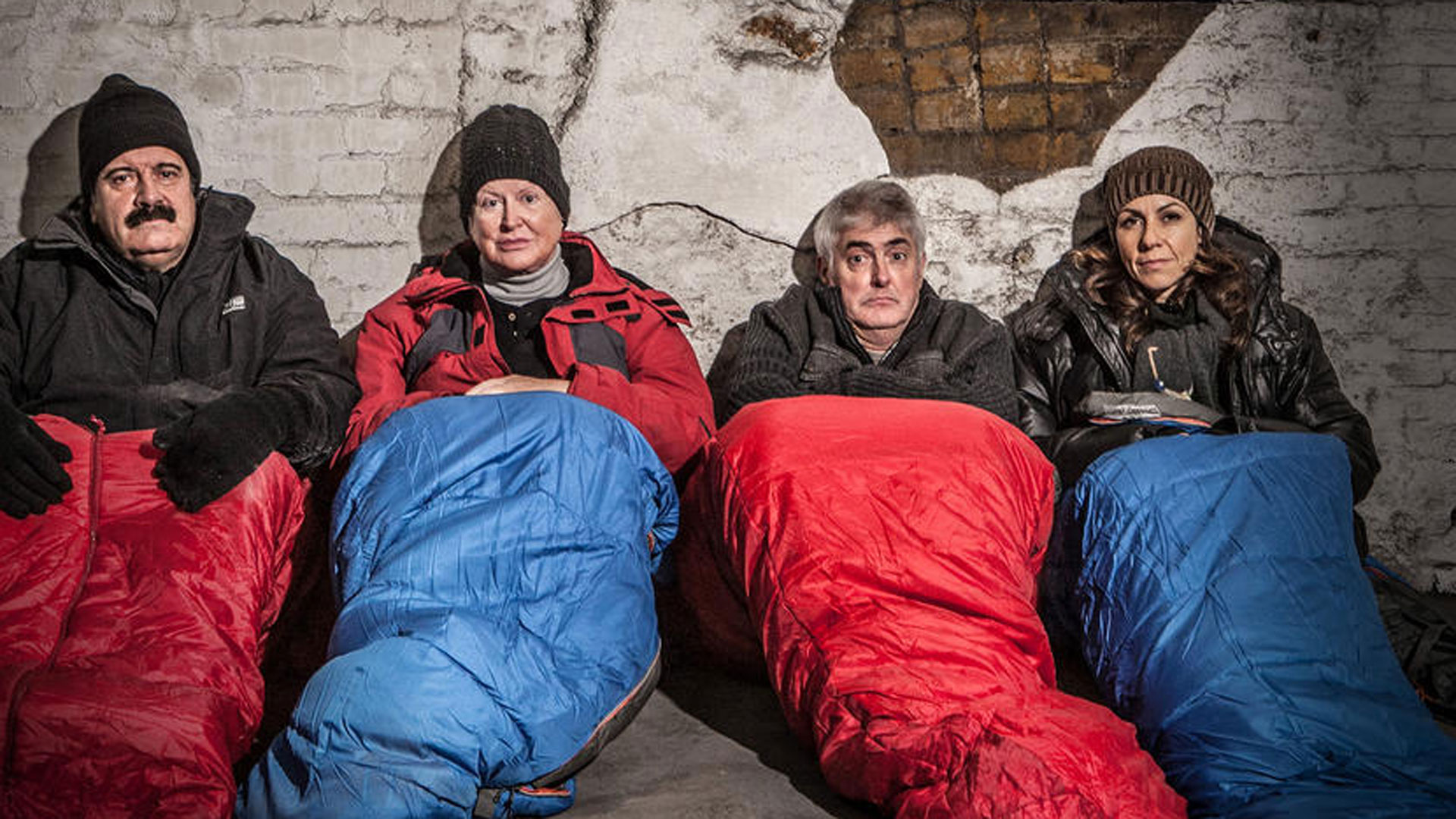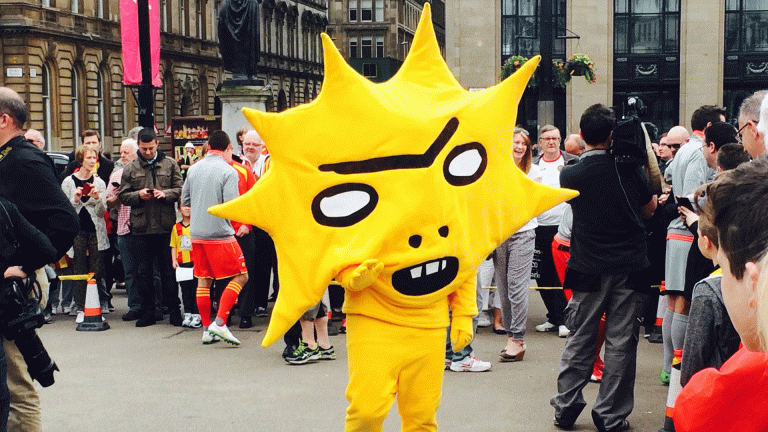Another suggested that each night when they turned off the cameras a bean feast was had by all, in some smart hotel.
Believability problems did occur but if you look at most people’s comments it had the desired affect. The vast amount of feedback shows that it did throw that light, and it did show that falling into homelessness is a terrible reality for too many people.
And that more needs to be done for the homeless to get them off the streets, and to prevent them ending up there in the first instance.
Putting people on an island and having them fend for themselves, or in a jungle to eat grubs and bugs, or on a London street and calling it ‘reality’ TV might be intent on telling us something about people.
That humans are ‘human’? That is, they change when up against it. That they might lose their kindlinesses? That they get reduced to basics that are often not very nice to watch?
Yet the positiveness of the audience’s response to Willie, Nick, Kim and Julia suggests that in fact Famous, Rich and Homeless actually increased people’s perceptions of homelessness.
Advertising helps fund Big Issue’s mission to end poverty
Homelessness is moving up the political agenda again because we have a real crisis around homes. Homes are increasingly becoming what they were for most of modern mankind’s history; under threat, temporary, inadequate; and in short supply.
Homelessness is moving up the political agenda again because we have a real crisis around homes
The golden age that greeted many people in the post-war period where housing became available through home ownership seems to be receding. And a return to when many people lived in a sense of great temporariness.
That golden period might have been the great historical exception. When flats and houses were emptied of their Victorian and Edwardian overcrowding, and replaced by one small family in one small house for many.
With housing becoming the biggest of all industries in the UK, with banks lending 87 per cent of their money to the buying and selling of housing, you can see that we don’t have much of an economy beyond it.
No wonder there is overheating in this one sector; because all the eggs in the UK economic basket are to be found there. Because this is where banks make their money, and speculators buy up property to make money out of it, rather than invest in a new technology. And it is about where a vast amount of people have their savings, and their prosperity represented: in bricks and mortar.
Many of the people you meet in homelessness have had traumas committed on them by family, by growing up, by life
But there is an added homeless-causing element that has only a tangential relationship to bricks and mortar. That is that many of the people you meet in homelessness have had traumas committed on them by family, by growing up, by life. Something gets broke that is not broke in other people.
Advertising helps fund Big Issue’s mission to end poverty
An ability to stay above the pressures of life, rather than be washed under them, is lost from them. They are socially engineered to repeat mistakes. And what they need more than anything is stability, opportunity and mental health support. Because living in and around homelessness does your head in.
Getting stability in people’s lives to face the demons that drew them to the street in the first instance is as vital as bricks and mortar.
But bricks and mortar, mixed in with the cement of social belonging, of healing the void in people’s lives, is what we need to propagate.
What Famous, Rich and Homeless did was throw a brief light on an area that we need once more to return to; with vehement determination. What Willie, Nick, Kim and Julia did was help us again see that yawning gap that exists in some people’s lives who do not deserve that kind of life.
And with the numbers increasing, we need to revisit provision, support and exit from this tragedy of modern life.
John Bird is the Founder and Editor in Chief of The Big Issue. Email him: john.bird@bigissue.com or tweet: @johnbirdswords
Advertising helps fund Big Issue’s mission to end poverty
Our 2020 Impact Report
The Big Issue has given more than £1 million support to Big Issue vendors struggling due to the lockdown restrictions. To mark the significant milestone, we have published an impact report, documenting the seismic shift the organisation has undergone in the past 12 months.
View Report 










